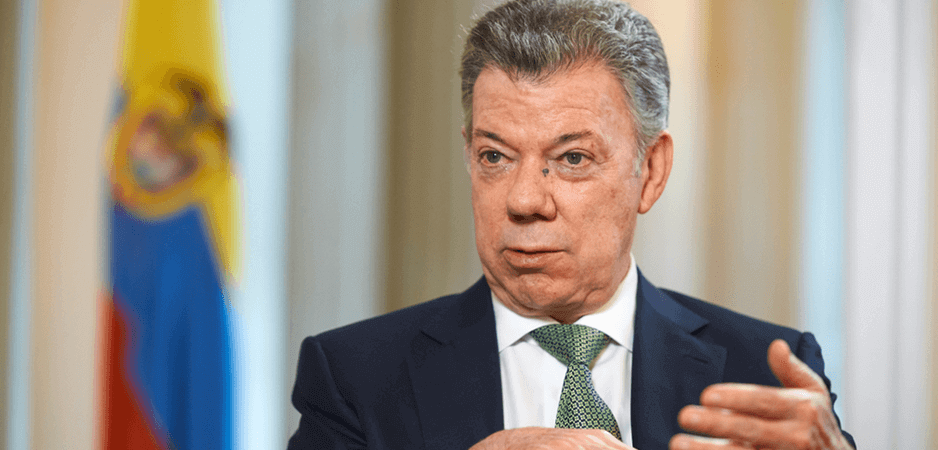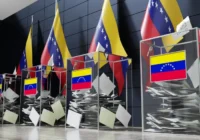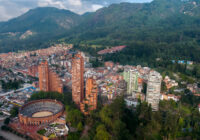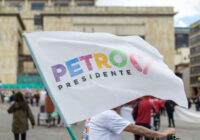Juan Manuel Santos leaves office as one of the most unpopular presidents in Colombia’s modern history.
On August 7, the presidency of Juan Manuel Santos — Colombia’s peacemaker — comes to an end after two terms in office. Santos, who turns 67 on August 10, has stated in numerous interviews that he will not remain active in Colombian politics. He says that he wants to devote most of his time to his family, limit his work to speaking engagements and maybe teaching. However, many interpret this intention to not interfere with Ivan Duque’s incoming administration as an attempt to contrast himself with his own predecessor, Alvaro Uribe, who is still active on the national scene.
A son of Bogota’s upper class, President Santos had a distinguished academic career, completing graduate studies at both the London School of Economics and Harvard University. He spent years in the private sector, first as a representative of the Colombian Coffee Growers Federation in the UK and then as deputy director of one of his country’s largest newspapers, El Tiempo.
Santos first entered politics during the 1990s, when he served as minister of foreign trade in the César Gaviria administration and later as minister of finance and public credit under Andrés Pastrana. Ironically, President Santos’ real rise to the public spotlight came when he served as minister of defense for the Uribe administration during its intense military campaign against the Revolutionary Armed Forces of Colombia (FARC) guerrillas. In fact, Santos never held elected public office, either in the executive or legislative branch, until his election to the presidency in 2010.
Over the last eight years, Colombia’s economy underwent major transformations. For his first term, Santos inherited a booming economy from Uribe: GDP was growing at approximately 4%, the unemployment level reached a single digit, inflation did not surpass 3.8% and foreign investments were pouring in, particularly in the petroleum industry. During Santos’ first term, Colombia signed free trade agreements with South Korea, Costa Rica and the European Union. However, his tenure saw a great deal of mass strikes that affected key economic sectors, such as airline pilots, university students, farmers, teachers, truck drivers and federal employees within the judicial branch. Nevertheless, his great gamble began in 2012, when his government started formal negotiations with the FARC and the president broke ranks with his key political ally, former President Uribe.
The negotiations with the FARC polarized Colombia for years, leading to a contested election in 2014. In that election, Uribe’s Democratic Center Party ran on a platform against the peace talks and managed to outperform President Santos’ re-election bid during the first round, before losing to a pro-peace bloc that coalesced around Santos in the second round.
Second Term in Office
During his second term, Santos had to deal with the economic fallout caused by the collapse of global oil prices, which led to a steep devaluation of the Colombian peso, a decrease in foreign direct investment and an increase in inflation. Meanwhile, President Santos signed even more free trade agreements, with Israel and Panama, and leaves office in 2018 with fairly advanced negotiations toward agreements with Turkey and Japan. Nevertheless, in the era of Brexit and Donald Trump’s America First rhetoric, the mixed economic results brought about by Santos’ free trade frenzy are the subject of great debate and have even led Duque to state that he will not sign any new free trade deals.
Santos’ government also approved a historic copyright law that brings Colombia up to international standards in terms of respecting patents and protecting intellectual property, particularly in the tech sector and creative industries. Simultaneously, Santos substantially enhanced transit infrastructure, more than doubling the amount of paved roads throughout the country, thus enhancing education metrics nationwide and closing the wealth gap between Colombia’s urban rich and rural poor.
On the political front, Santos realized the dream of many Colombians through the implementation of the peace deal with the FARC signed in Cuba in 2016, which ended five decades of conflict and won him the Nobel Peace Prize — despite the setback when a popular plebiscite voted down the original terms of the agreement. Some of the key issues within the agreement then had to be renegotiated and approved by congress.
As part of his social reconciliation agenda, Santos ushered through congress major pieces of legislation such as the Victims’ Law, which seeks to restitute land rights to minorities that have been disenfranchised politically and economically throughout decades of conflict. Likewise, Santos signed the Statute of the Opposition, which gives minority and opposition parties a more active role in national politics. Under Santos, congress also created the Special Jurisdiction for Peace (JEP) — a transitional justice mechanism that is part of the peace accords and allows former combatants to be tried expediently while benefiting from reduced sentencing in exchange for full collaboration with this special court. Parallel to the JEP, the Santos government passed the Submission Law, which gives reduced sentencing to criminal groups that turn themselves in freely and collaborate with judicial investigators.
These new laws and the JEP jurisdiction are key as Colombia seeks to overcome its history of violence because they offer the remaining dissident guerillas and drug-trafficking groups a way out. While some of these legal mechanisms are permanent, such as the Statute of the Opposition, others are temporary and could be overturned prematurely, particularly given President Duque’s hawkish stances. Nevertheless, they do offer a political grace period before any future government might decide to embrace a zero tolerance policy once again.
On the international front, Santos’ agenda focused on bringing Colombia onto the global political scene and building new bridges worldwide. In this regard, the government opened numerous embassies of countries like Australia, Turkey, Hungary, the United Arab Emirates and Austria. Moreover, Santos was one of the main promoters of the Pacific Alliance, a regional integration initiative alongside Chile, Peru and Mexico. Most recently, he reached major international milestones with the country’s accession to the Organization for Economic Cooperation and Development (OECD), as well as the incorporation of Colombia as NATO’s global ally. This improved international standing has resulted in a substantial decrease in the number of countries that require an entry visa for Colombian nationals, most notably the EU’s Schengen area.
The Great Gamble
In spite of his many achievements, Santos recognizes that his administration had shortcomings and that he could have done more. The outgoing government has been unable to make any substantial progress in talks with the National Liberation Army (ELN) — a small guerrilla group still active in some regions of the country — and the process is likely to come to a halt under the next president. Similarly, Santos’ administration was tarnished by scandals, most notably the Odebrecht corruption scheme that engulfed parts of South America and delayed important infrastructure projects in Colombia, such as regaining the navigability of the Magdalena River and completing the Sun Route highway.
Likewise, there was a substantial increase in the cultivation of illicit crops, notably coca, and violence directed toward social leaders in rural regions of the country. On foreign policy, President Santos was unable to deal comprehensively with the crisis in neighboring Venezuela. With approximately a million Venezuelan refugees having entered Colombia during the last few years, the incoming President Duque will certainly have to address this issue.
Ultimately, Juan Manuel Santos leaves the Nariño Palace as one of the most unpopular presidents in Colombia’s modern history. However, by many accounts, he leaves the country better than he found it. Once the dust settles, history will look kindly upon the peacemaker’s great gamble for peace. It is now up to Ivan Duque to decide whether he will protect and build upon Santos’ still-fragile peace or whether he will give into the warmongering passions of his most radical political base.
The views expressed in this article are the author’s own and do not necessarily reflect Fair Observer’s editorial policy.
Photo Credit: Truba7113 / Shutterstock.com
Support Fair Observer
We rely on your support for our independence, diversity and quality.
For more than 10 years, Fair Observer has been free, fair and independent. No billionaire owns us, no advertisers control us. We are a reader-supported nonprofit. Unlike many other publications, we keep our content free for readers regardless of where they live or whether they can afford to pay. We have no paywalls and no ads.
In the post-truth era of fake news, echo chambers and filter bubbles, we publish a plurality of perspectives from around the world. Anyone can publish with us, but everyone goes through a rigorous editorial process. So, you get fact-checked, well-reasoned content instead of noise.
We publish 2,500+ voices from 90+ countries. We also conduct education and training programs
on subjects ranging from digital media and journalism to writing and critical thinking. This
doesn’t come cheap. Servers, editors, trainers and web developers cost
money.
Please consider supporting us on a regular basis as a recurring donor or a
sustaining member.
Will you support FO’s journalism?
We rely on your support for our independence, diversity and quality.






